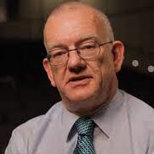Sir Samuel Brittan, R.I.P.
SUGGESTED



Although he began his intellectual life on the Keynesian left, his economic views changed markedly and he became one of the main figures in the monetarist counter-revolution of the 1970s and early 1980s. However, he was never a conservative and remained throughout his life an individualist liberal (a term he used himself). Throughout his career as a commentator he argued against the dominant associations of ideas that were used to define left and right and for a consistently liberal position that combined free–market economics with social and cultural liberalism. He was thus an important figure in the revival of an explicit and self-aware classical liberal intellectual movement, both in the UK and more widely.
He was born in 1933 in London, to Lithuanian Jewish parents who had migrated to the UK. He went up to Cambridge and studied there at Jesus College. During his time as a student he had the interesting experience and good fortune to be taught at various times by Peter Bauer, Milton Friedman and Harry Johnson. Despite this early exposure to free-market thinking he was at that time a member of the Labour Party and a supporter of the then-dominant Keynesian approach to macro-economic management.
In 1961 he joined the Observer, where he remained until 1964 while working on his first book, Steering the Economy: The Treasury Under the Tories. In that work he was critical of the stop-go pattern of policy followed by chancellors from Butler onwards, but had not yet broken with Keynesianism. Following the Labour victory in 1964 he became an advisor at the newly-created Department of Economic Affairs (headed by George Brown). His experiences there, combined with the longer–term impact of his contact with Johnson and Friedman (particularly Johnson), led him to reassess his views. His eventual conclusion was that the kind of macroeconomic policy followed by all UK governments since about 1949 was bound to have increasingly disappointing results and that the idea of steering an entire national economy was illusory. He also concluded that the UK’s increasingly acute labour market and industrial relations problems made Keynesian strategies less effective there than anywhere. Later on, this would become a widespread view, but he was one of the first to arrive at it.
In 1966 he left government and joined the Financial Times, where he would remain as a commentator and writer for the rest of his life. Two important features of his thinking emerged at this time and came to feature prominently in his columns. The first was an increasingly clear rejection of orthodox Keynesianism and an emphasis on monetary policy as the alternative to both the stop-go policies of the Treasury and the increasingly desperate resort to intrusive price and wage controls to control inflation. This was the time when Milton Friedman launched his attack on the post-war consensus, and the consequent ‘counter-revolution in monetary theory’. Brittan was one of the earliest publicists and advocates of this.
At the same time, he became involved with the IEA and he was one of a number of financial journalists who acted as both contributors to discussion there and as expositors of the IEA’s critique of the economic policies and industrial relations strategies of both the Wilson and Heath governments (Andrew Alexander and Patrick Hutber were two others). As the 1970s went by he became an advocate of the monetarist alternative to the consensus and therefore a supporter of the sharp shift in policy brought in by Margaret Thatcher in 1979. When the famous open letter by 365 economists attacking the policy and calling for a return to Keynesianism was published, Brittan was one of the few public voices opposed to it and supporting the government.
The second element of his thinking was one that remained central to his work throughout his life. This was a rejection of the division between “left” and “right” that appeared in the 1960s, with the left coming to be associated with social liberalism, in the shape of measures such as the legalisation of homosexuality and relaxation of the laws on abortion, while still adhering to economic interventionism. The right was now much more identified with market economics, but also with opposition to social liberalism and the “permissive society“. Brittan rejected this choice in two of his most important and influential works, “Left and Right: The Bogus Dilemma” and “Capitalism and the Permissive Society”. In them he argued that the natural and correct fit was the combination of free–market economics (“capitalism”) and social liberalism and cultural individualism (the “permissive society”). He thus advocated a consistent and thoroughgoing liberalism and was one of the first prominent voices to do this in the UK. He was very clear that he was not in any sense a conservative and was critical of the effort to combine social conservatism and economic liberalism (“fusionism” as it came to be called). He lived long enough to see his favoured combination become dominant and just long enough to see a reaction against it.




